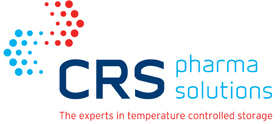The importance of Stability Testing
Pharmaceutical manufacturers and distributors need to be aware of the dangers of temperature fluctuations in relation to sensitive products. Many medications and vaccines require unique temperature storage throughout their lifetime. Some products can become dangerous when subject to inappropriate temperatures, whilst others see a decrease in the potency of active ingredients. Either way, temperature issues can diminish the quality of these products, deeming them unfit for use.
This is the main reason why pharmaceutical testing is so vital for products, as stability needs to be determined to ensure safe and hygienic transport. Many products will find themselves travelling across the country, with various stop-off points along the way. Temperature and humidity will, of course, be controlled as precisely as possible throughout each journey but sometimes fluctuations may still occur.
Controlled Room Temperature (CRT)
Not all products are the same and whilst some will need general temperature control, others will require more specific atmospheres. It’s for this reason that controlled room temperature storage units are so imperative to the success of your business and safety of your products.
Controlled Room Temperature stores are specifically designed to help companies store pharmaceutical goods under stringent conditions for optimum efficiency. More importantly, they are an essential tool in stability testing; allowing manufacturers to accurately assess how well a product performs under extreme temperatures – both hot and cold.
Controlled Room Temperature units can be custom designed to suit the needs of your company and the specific needs of each pharmaceutical product you are testing. They allow you to recreate any situation that items might face whilst in transport and study the effects different temperatures and humidity can cause.
Knowing which products require the most stringent temperature control will ensure that transport and distribution is adequately prepared and that your products arrive undamaged. Additionally, close temperature stability testing can also be a valuable tool when developing newer, more resilient products for the market.
Features you can get behind
Controlled Room Temperature units are designed with all the right features in mind. The most important of these features is the ability to remotely monitor, store and change temperature and humidity within a contained unit for prolonged periods of time.
Each unit meets the specific ICH guidelines and regulations required for pharmaceutical testing. To protect the integrity of studies, each unit can be fitted with emergency back-up facilities that trigger immediately should anything go wrong.
Controlled Room Temperature storage can be created as one singular unit or many units can be joined together for larger scale stability testing. Every unit is designed for both long term and short term testing of products, regardless of size.
Furthermore, every container can be fitted with audio and visual alarms to alert testers of changes in temperature and humidity, as well as the latest remote security features for peace of mind when absent from the testing facility.
Manufacturers have a responsibility to ensure stability testing is carried out to a safe and high standard and that each test meets the requirements necessary for release to the public. CRS Pharma offer a custom design service specifically for the stability testing of pharmaceutical products.
To find out more about our Controlled Room Temperature and humidity control units, talk to a member of the team today. Alternatively, you can complete our enquiry form and we will repond as soon as possible.







